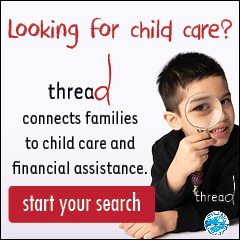
POSTPARTUM WELLNESS
New baby blues? Experts say exercise, friendship and a little bit of sleep can make the difference
Story by Michelle Theriault
When Anchorage resident Kristy Clay was pregnant with her first child, post-baby wellness was not her biggest concern. But after her daughter was born she found herself in a situation familiar to many new mothers: trying to balance the happy new addition to her life with reclaiming her body and emotional state. “You prepare to be pregnant,” she says. “But when you go home with a baby you’re sleep-deprived, exhausted and emotional, and you have this body you just don’t recognize.”
In the days and weeks after birth, mothers often struggle with changes in their bodies, feelings of isolation and a new set of pressures on their marriages, finances and careers. The “baby blues” are a very real and very common experience, says Rebecca Love, a counselor at the Anchorage Women’s Clinic who sees many new mothers as part of her practice. Women may feel teary, overwhelmed, irritable or impatient. This short-lived period of mild depression affects up to 85 percent of new moms, according to the American College of Obstetricians and Gynecologists.*
Experts increasingly recognize the role that postpartum wellness – of mind, body and spirit – plays in ensuring a healthy and happy mother and baby. Love says that taking an honest assessment of how you’re doing is the first step to wellness. “Self-care, self-care, self-care,” she says. “I feel like I say that all day.”
Some fundamental – and innovative – ways to feel good:
Sleep
For new moms, sleep is both vital and elusive. The lack of sleep can exacerbate the stresses of new motherhood. “Sleep deprivation would make anyone not their resilient self,” Love says. The Wisconsin-based Perinatal Foundation recommends trying to nap when the baby naps. Repeat a mantra to help fall asleep and try relaxation techniques like listening to music, meditating, reading a book or getting a massage.
Nutrition
Experts recommend a “grazing” approach to eating – snacks every two or three hours in smaller portions. Anchorage certified doula and childbirth educator Laura Tolman says that new mothers’ bodies are often deficient – especially in Alaska – in things like vitamin D. She recommends seeing a nutritionist who can develop a healthy eating plan that helps the body recover from birth and supports breastfeeding.
Exercise and Time for Yourself
New moms cooped up in the house caring for their babies get a boost from being outdoors. “I really think getting outside and exercising is important,” says Love, Anchorage Women’s Clinic counselor. It can be tough in Alaska’s extreme climate: In the winter some moms don’t want to take baby outside in the cold, and the long daylight hours of summer can disrupt already upended sleep schedules. Still, with proper planning there are ways to get exercise with baby – even outside – in almost any temperature. The Children’s Hospital at Providence offers parenting classes like “Babes in the Snow,” which teaches parents to safely take their babies out into Alaska’s winter wonderland. Another class, called “Babes in the Woods: Hiking/Backpacking” teaches similar skills for summer outdoor adventures.
Combining socialization with exercise is better yet. A recent International Journal of Nursing Practices study found that women diagnosed with postpartum depression who completed a 12-week stroller-walking class with other moms and babies showed fewer symptoms than those in a mom-baby playground that didn’t involve exercise. Kristy Clay decided during her second pregnancy that she’d take control of her postpartum recovery. She bought a franchise of Stroller Strides, a national fitness program targeted at moms of young kids. Groups meet weekly, and the program combines socializing with baby-friendly group workouts. “It’s about getting out of the house, meeting other people, and getting those endorphins going,” Clay says.
Stroller striders meet indoors in the winter and at parks in the summer. Women bring their babies and toddlers along and work out under a plan tailored to motherhood, doing exercises to soothe backs strained by hunched-over nursing, and strengthen muscles needed to carry a constantly growing infant. The group classes also work toward another important element of postnatal wellness: helping women find support and community through companionship with other moms. For Stroller Strides owner Clay, watching her clients become friends is the best part. “Moms are anxious to fit in their pre-pregnancy jeans, but often what they don’t anticipate is making amazing friends,” she says.
Emotional and Physical Support
Of course, all of these suggestions are only possible when a new mom has help from a spouse, partner or other network. Asking for help can be one of the hardest things for new mothers to do, says Love.
There’s the option of hiring a “postpartum doula” to help with the transition. Tolman says the concept of a dedicated helper for new moms is an old one. For centuries, new mothers in cultures around the world were surrounded by a community of women in the days and weeks after childbirth. “These days in our society, we’re so isolated,” Tolman says. “People expect you to have a baby and recover on your own immediately.” A certified childbirth education and labor support professional can help watch the baby while the mother takes a nap or a shower, troubleshoot breastfeeding issues, assist with housework and field visitors and phone calls.
Most of all, says Love, it’s important for new mothers to remember that they aren’t alone, and they will likely soon be back to their old resilient selves. Just remember to take a bit of time for yourself. After all, when a baby is born, so is a mother.
*For about 10 percent of new moms, the “baby blues” develop into postpartum depression, which is more serious, according to the American College of Obstetricians and Gynecologists. If not recognized and treated, it can last up to a year or even longer. Contact your health professional if you have symptoms of depression that last longer than two weeks or if you have troubling or dangerous thoughts. Anchorage Women’s Clinic counselor Love says it’s important to remember three things if you’re struggling with the baby blues or postpartum depression: you’re not to blame, you can get help, and with help you will be well.









